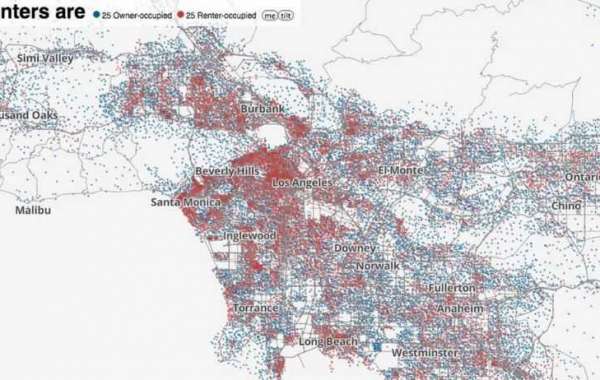Opportunity Zones
Remarks by President Trump at the Opportunity Zone Conference with State, Local, Tribal, and Community Leaders
Issued on: April 17, 2019
…
I want to thank Secretary Steven Mnuchin and Secretary Ben Carson, who were right here. And they are. (Laughter.) They’re waving to me through the door. (Laughter.) And that’s okay. Just stay there, fellas. They’ve already heard from me. (Laughter and applause.) And they’re doing a great job, those two. And for their tireless work on behalf of nearly 35 million Americans living in Opportunity Zones. Tremendous community.
…
New jobless claims are the lowest in 50 years. Private employers have added an average of more than 6,500 jobs every single day. Think of that. It’s amazing.
…
And something I’m very proud of and worked very hard with Jared and everybody on was judicial reform. And to give inmates a second chance at life, we passed the bipartisan criminal justice reform. So many things have happened since that’s happened.
…
And very interestingly, one of the things that we’ve done that has helped this so much — prisoners coming out, people don’t want to hire them — they just don’t want to hire them. It’s got something — a stigma. Call it whatever you want. They weren’t being hired. This is for — I would say, since our founding, very hard for prisoners. This is the best they’ve ever done, by far.
…
I had one gentleman tell me — a man I know; a businessman — he said, “I’ve hired some people coming out of prison. I never thought I’d be doing it. I’m doing it, and they’re some of the best employees I have.”
And that was done because the economy is so strong. Because, frankly, they’re having a hard time getting people. And now they’re taking people that they wouldn’t have liked and they would have never taken, and they’re putting them in and they’re finding them to be phenomenal.
So it’s never happened before like it’s happening now. People coming out of prison are getting a second and, in some cases, a third chance.
I’ve also signed the single-largest bill to combat the opioid crisis to help free Americans from the scourge of addiction. There’s never been anything like it. Over the last 10 years, what’s going on is incredible. And we’re stopping them much more so at the border. We will — as soon as the wall is built, it will have a tremendous impact.
…
And we want all Americans to share in our great economic renewal. That’s why governors in all 50 states and the territories have designated 8,700 neighborhoods as Opportunity Zones. Hard to believe: 8,700.
Household income in these communities is 37 percent less than the median income in a state as a whole. So it’s 37 percent down, and we’re catching them fast.
In order to revitalize these areas, we’ve lowered the capital gains tax for long-term investment in Opportunity Zones all the way down to a very big, fat, beautiful number of zero. (Applause.) Zero. That’s why they’re looking and they’re saying, “No, I don’t want to go there. Maybe I don’t love the location. I don’t want to go.” And then they hear about the zero, and they’ll say, “I think I’m going to go there.” (Laughter.) And then they start liking the location, right? Our great football player. You are some player, huh? I’ll never fight you, I promise. That’ll never happen. Great player. Scott.
Our goal is to rebuild homes, schools, businesses, and communities that need it the most. And we have just — I don’t know, we’ve hit something that’s very unusual. This is a very surprising thing to everybody — even to me, to a certain extent. You know, you do things. Nobody thought it was going to catch on like it’s caught on.
…
MAYOR FLAGGS: Thank you very much. Mr. President, thanks for the honor to be here this day. And I will say first that I think we was the first Opportunity Zone that was created as a result of your tax cut and your — the other opportunities.
But let me just say this: As a mayor of a city and former legislator for 25 years, I’ve never seen any piece of legislation that allows more collaboration between federal, state, and local government.
And just to tell you what we was able to do: In Vicksburg, we have created — 54 percent of our new jobs and the new jobs in the state of Mississippi was created in Vicksburg, Mississippi, because of the economic opportunity we share here today.
…
…Secretary Mnuchin estimates that private businesses will invest $100 billion in Opportunity Zones…
…
To further support these communities, I recently established the White House Opportunity and Revitalization Council, chaired by Secretary Carson — who, by the way, is doing a fantastic job at HUD. He’s really doing a fantastic job at HUD. (Applause.) Its mission is to marshal 16 federal agencies and coordinate dozens of existing federal programs to provide maximum support to Opportunity Zones.
…
And here with us today is a man who I knew through watching him on television, and he was a great football player. He’s a businessman, he’s a former state legislator, and retired from the NFL after about 10 or 12 years or something. Huh?
…
- TURNER: Well, good afternoon. Thank you, Mr. President. I appreciate your vision and your leadership on this. And I just — a couple quick things I want to say. You know, I have a lot of joy in my heart and a lot resolve in my spirit. Joy because, as I look out on the room, what a great representation of our country, of the true heart of America and the culture of America. And that brings me great joy.
I’m humbled to be here not because of the position, but because of the mission, because of the purpose that’s been set forth by the President and our great team here.
And I have a lot resolve because this is a big job. There’s a lot of work to do. As you can see, we’re all here. There’s big ways — big things to do, but I know that if we set our face like flint, we can do it. And together we can do it. This is the greatest team. I’ve been able to play on a lot of teams — San Diego, Washington, Denver — but this is the greatest team because we have the opportunity to make a generational impact, us together.
See, revitalization doesn’t have a color. It doesn’t have a party. Revitalization starts in the heart of every man. (Applause.)
And I’ll say that because, if we focus on the true mission and the people — the grandmothers, the grandfathers; the next generation coming out through us; the kids that are truant and now they’re working; the single mothers who now have a job — to restore dignity and hope in their family and in the community, that’s why I’m here. And I believe that’s why you’re here. So, Mr. President, thank you. I’m ready. I’m ready to go get it. And I know you are. So God bless you. Thank you very much.
…
Trump: For example, the Department of Labor will target Opportunity Zones for prison reentry employment. The Department of Housing and Urban Development is launching a new pilot program to support additional low-income housing in these areas. And the Department of Justice will strengthen its comprehensive effort to address youth violence and crime.
…
Today, we’re grateful to be joined by Neli Vazquez Rowland. More than 20 years ago, she and her husband started a project called A Safe Haven, which provides people in crisis with housing and drug treatment, workforce training and jobs. Neli has helped more than 100,000 men and women overcome poverty and achieve a better life. It’s a very inspirational story.
…
- VAZQUEZ ROWLAND: Wow. What an amazing day. My husband and I founded A Safe Haven 25 years ago with this day in mind. I grew up in a poverty-stricken community, and my husband came home from the military, and both of us had encountered challenges in our lives.
And we are grateful that we had the opportunity to get access to good education and to get access to careers and finance, but it was never lost on us how lucky we were to get access to those types of opportunities. So we decided that, after 13 years in financing, we wanted to give back. We wanted to make a difference.
So we started looking at the issues of poverty and specifically looking at the issues of substance abuse. And when we did our research, we realized, back in 1994, that the system was broken. People that were in crisis and ended up in the system we found out had no way out, and we knew that we had to do something about it. We had the financial wherewithal, thank God, and we had the knowledge and the ability to build something.
And we took the risk, and we decided to start investing in Opportunity Zones, in areas that had distressed properties and abandoned buildings. And then we started renovating them, and we started furnishing them. And we started letting people in crisis live there for free, as long as they followed the rules.
And what happened was transformative. As we started to bring people in, we noticed that they started to get their lives back on track. They started to get the treatment, the education, the job training that they’d been needing. And at the end of the day, as the President mentioned, no one would hire them. So what we did is we started businesses.
So, today, we have a landscaping company. For those of you that have come to Chicago, you might recognize those beautiful medians on Michigan Avenue. We employ hundreds of people doing those jobs. We also have a catering business and we have a staffing business. And you’re right: The employers are calling us. We cannot fill those jobs fast enough.
So we’re grateful to be here today, Mr. President, and to thank you for everything you have done, between the opiate epidemic, the criminal justice reform, and now the Opportunity Zones. Our work at A Safe Haven has just begun. Thank you.
…
My Comment
People are buying homes again and these Opportunity Zones allow them to rebuild their neighborhoods.
I didn't read anything in this about building public transportation and high density public housing.
What I read in here is that Opportunity Zones encourage employers by offering zero capital gains taxes.
The capital gains tax rate in 2019 is:
0% for family incomes of $0 to $78,750
15% for incomes of $78,751 to $488,850
20% for incomes of $488,851 or more
A Zero capital gains tax is an incentive to invest and become an employer. If Bernie Sanders was working for you, he would still be paying 25% income tax.
When Obama was president the homeownership rate dropped below the 50 percent mark. It's going up again under President Trump.
Our home equity is going up and making it possible to downsize, send the kid off to college and move out of California to buy a much cheaper home in another state to retire in.
California is the New Green Deal.
It's actually the same as what was federalized under Obama and discarded by President Trump.
They are lining our streets with bike lanes, light rail lines, dedicated bus lanes and mini-parks in streets to encourage people to give up their cars. Along those rail lines are high density apartments where the wealthier pay for the poor (mostly recent immigrants).
California's governor just admonished 47 cities for not complying with building affordable housing.
There is a bill pending, SB 50, that would allow the state to supersede local zoning codes and allow 8 story high apartment buildings in every neighborhood to accommodate the poor gangbangers. You wouldn't be allowed to contest the development. Some with no parking spaces.
The state wants those kids in nice neighborhoods because good teachers are afraid to teach in their violent neighborhoods. When your neighborhood turns to crap, you lose equity in your home.
This happened in the early 80s when in the City of Los Angeles they wanted to bus our kids into violent neighborhoods. Those that reacted quickly enough had enough equity to sell their homes and move out of the school district. It was called White Flight.
Those that waited too long lost their equity and the city became a city full of renters. Apartment buildings were offering 2 months free rent.
From 2015
Mapping Los Angeles's Lowest-in-the-Country Homeownership
https://la.curbed.com/2015/7/30/9935120/los-angeles-homeowner-renter-map








